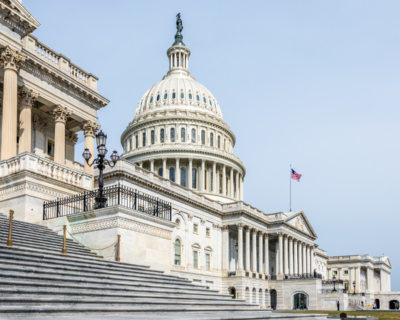Rising Unemployment and Questionable Projects Highlight Failures of Stimulus Spending
Months after the passage of the $787 billion economic stimulus package, rising unemployment and questionable projects highlight the problems with stimulus spending.
A Department of Labor report disclosed that, “In all, more than one out of every six workers — 17.5 percent — were unemployed or underemployed in October. The previous recorded high was 17.1 percent, in December 1982.” Another report on stimulus package accomplishments overestimated how many jobs had actually been created or saved as a result of the stimulus package. For example:
A Texas contractor whose business kept 22 employees to handle stimulus contracts saw its job count inflated to 88 because the same workers were counted four times.
The water department in Palm Beach County, Fla., hired 57 meter readers, customer service representatives and other positions to handle two water projects. But their total job count was incorrectly doubled to 114.
A Colorado business claimed that its stimulus contract created more than 4,200 jobs. TeleTech Government Solutions actually hired 4,231 temporary workers for its stimulus project, but most of them worked for five weeks or less and the others no more than five months, company president Mariano Tan said.
Further, many of the stimulus projects appear to be nothing more than opportunities to spend money, with little or no benefit to taxpayers. An article in the Washington Examiner highlighted several dubious projects:
$300,000 for a GPS-equipped helicopter to hunt for radioactive rabbit droppings at the Hanford nuclear reservation in Washington state.
$11 million for Microsoft to build a bridge connecting its two headquarter campuses in Redmond, Wash., which are separated by a highway.
$800,000 for the John Murtha Airport in Johnstown, Pa., serving about 20 passengers per day, to build a backup runway.
$9.38 million to renovate a century-old train depot in Lancaster County, Pa., that has not been used for three decades.
$2.5 million in stimulus checks sent to the deceased.
The bad news does not end there. Lawmakers are contemplating further action, such as extending the first-time home buyers credit, which is already costing taxpayers $6.6 billion. Additionally, the federal government is considering “extending subsidies for laid-off workers to help them keep the health insurance their former employers provided, known as COBRA, which is costing taxpayers nearly $25 billion.”
These actions raise concerns that a second stimulus bill may be on the horizon. The fiscal year for 2009, which ended shortly over a month ago, saw the United States hit a record $1.4 trillion dollar federal deficit. It’s official: Federal spending is out of control.




